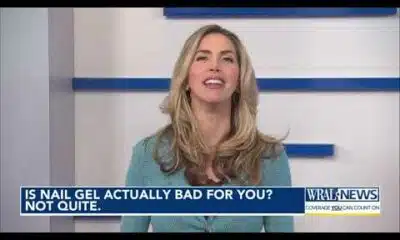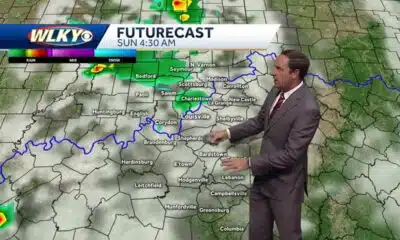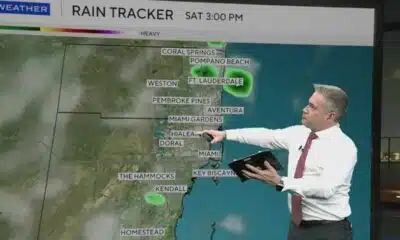News from the South - Virginia News Feed
New boil water advisory issued in Richmond, months after January water crisis
by Markus Schmidt, Virginia Mercury
May 27, 2025
Richmond officials issued a new boil water advisory Tuesday for large swaths of the city, less than six months after a catastrophic water crisis left much of the region without safe drinking water for days.
“People can use the water,” Avula said. “They just need to boil it before they drink it,” Mayor Danny Avula said in a virtual press conference Tuesday afternoon, adding that the city doesn’t currently have plans to distribute bottled water.
The latest advisory, announced by the city of Richmond in coordination with the Virginia Department of Health late Tuesday morning, affects residents served by the Ginter Park Tank, including neighborhoods such as Byrd Park, Brookland Park, Carver, Carytown, Chamberlayne, the Fan, Jackson Ward, Oregon Hill, Randolph and the VCU Monroe Park campus.
By Tuesday evening, the advisory had expanded to include Southside neighborhoods such as Ancarrow’s Landing, Bellemeade, Blackwell, Commerce Road Industrial Area, Hillside Court, Davee Gardens, Manchester, Oak Grove, and Windsor.
Some customers may experience total service loss or low pressure, Avula advised. Others may not notice a change, but officials urged all residents to conserve water immediately and to boil water before consuming it.
“This advisory comes after the city’s water treatment plant experienced an operational issue in the early morning hours on Tuesday, May 27, and after the water system had been restored to full production,” the city said in a statement. “The filters re-clogged after running at full production for over an hour.”
The pressure drop has impacted the Ginter Park tank, and while the city says it is monitoring efforts to restore full pressure, no timeline has been given. The city warned that the list of affected areas could grow if usage continues to outpace supply.
“As a cautionary measure, all residents are asked to conserve water to ensure all needs are met during this time,” the statement said. “We will continue to monitor the situation closely and provide updates to our customers as new information becomes available.”
State faults Richmond for water failures and demands corrective action
Officials urged residents to avoid drinking tap water, making ice, brushing teeth, cooking, or washing food or dishes with unboiled tap water. Full water safety guidelines and neighborhood maps are available at rva.gov.
It’s not clear how long the advisory will last. The water levels in the city’s reservoir need to be at a certain height for water testing to begin, Avula explained. Then, the Virginia Department of Health must conduct two tests, between 16 and 24 hours apart, in order for the boil water advisory to be lifted.
At 8:30 p.m. Tuesday, Avula hopped on a media briefing to announce that a water sample for the first of two tests had been collected.
The advisory is likely to draw renewed scrutiny to Richmond’s water system, which remains under investigation following the massive January breakdown that left thousands without water or usable water pressure for nearly a week.
In April, the Virginia Department of Health released a scathing 314-page report on the January event, calling it “completely avoidable” and the result of “a long chain of preventable failures” at the city’s century-old Water Treatment Plant.
“This crisis could have been prevented with better operational decisions,” State Health Commissioner Dr. Karen Shelton said at the time. “Our goal now is to ensure corrective actions are taken swiftly and effectively, so Richmond-area families can trust their water supply.”
The report, based on an independent probe by the engineering firm Short Elliott Hendrickson, detailed a cascade of failures, such as untested batteries, broken valves and neglected emergency protocols. When a winter storm knocked out overhead power lines on Jan. 6, the plant’s backup systems failed, flooding underground equipment rooms and halting production.
The city’s response was slow and, in many cases, ineffective. By the time Richmond issued a boil advisory that afternoon, pressure had already dropped dangerously low. Water systems in Henrico, Hanover and Goochland counties, which connect to Richmond’s, were also impacted. Full restoration didn’t come until Jan. 9, and the boil order wasn’t lifted until Jan. 11.
Gov. Glenn Youngkin called the disruption “unacceptable” and said, “It should never happen again.”
As a result of the January failure, the city received a second formal notice of violation and is now under a mandate to develop and implement a corrective action plan. The SEH report identified over $63 million in additional needed improvements, on top of $60 million already proposed in the city’s capital plan.
Those upgrades include modernizing electrical systems, automating emergency operations, and redesigning the clearwell overflow system to prevent future floods.
While Mayor Danny Avula said he was “incredibly proud” of the work done so far by the Department of Public Utilities, the VDH’s findings painted a picture of what one official called a “culture of complacency,” where temporary workarounds were the norm and long-standing vulnerabilities went unresolved.
Now, just weeks later, the system has suffered another setback.
The city said it will continue to post updates on its website and social media platforms. Residents are encouraged to check those resources regularly and to follow all water safety precautions until the advisory is lifted.
Virginia Mercury reporter Charlotte Rene Woods contributed to this story.
YOU MAKE OUR WORK POSSIBLE.
Virginia Mercury is part of States Newsroom, a nonprofit news network supported by grants and a coalition of donors as a 501c(3) public charity. Virginia Mercury maintains editorial independence. Contact Editor Samantha Willis for questions: info@virginiamercury.com.
The post New boil water advisory issued in Richmond, months after January water crisis appeared first on virginiamercury.com
Note: The following A.I. based commentary is not part of the original article, reproduced above, but is offered in the hopes that it will promote greater media literacy and critical thinking, by making any potential bias more visible to the reader –Staff Editor.
Political Bias Rating: Center-Left
This article primarily reports on the water crisis in Richmond with detailed coverage of government failures, infrastructure issues, and public health concerns. It emphasizes accountability, citing independent reports and critical statements from officials, including Governor Glenn Youngkin. While the tone remains factual, the focus on systemic failures and the “culture of complacency” within city government leans slightly toward a progressive viewpoint that advocates for governmental responsibility and infrastructure investment. However, it maintains balanced reporting by including official responses and avoids overtly partisan language, placing it modestly left of center.
News from the South - Virginia News Feed
Area of interest forms in the Atlantic
SUMMARY: On September 11, 2025, Chief Meteorologist Tim Pandages reported on Hurricane Hub Live about tropical developments in the Atlantic and eastern Pacific. In the Atlantic, a low-chance area of interest near the Cabo Verde Islands may become Tropical Storm Gabrielle but requires favorable conditions. Recent tropical waves have struggled due to stable atmospheric conditions. Models show possible development east of the Leeward Islands with a likely recurving path away from Bermuda. In the eastern Pacific, Tropical Depression 13E has formed, expected to become Hurricane Mario, the season’s 8th hurricane. The Atlantic has had only one hurricane so far, Major Hurricane Aaron. Activity is expected to increase into October.
The newly formed area of interest could become Invest 92-L off the coast of Africa. Find out about that and more during tonight’s episode of Hurricane Hub LIVE! Livestream from Thursday, September 11, 2025.
Subscribe: https://www.youtube.com/user/wvectv/?sub_confirmation=1
Download the 13News Now app: https://bit.ly/13NewsNowApp
Watch 13News Now+ for free on streaming: https://www.13newsnow.com/13NewsNowPlus
Check out our website: https://www.13newsnow.com/
Like us on Facebook: https://www.facebook.com/13newsnow/
Follow us on X/Twitter: https://x.com/13newsnow
Follow us on Instagram: https://www.instagram.com/13newsnow/
News from the South - Virginia News Feed
Cat cafes, chromotherapy and pumpkin delivery: Here’s what’s new in RVA this September
SUMMARY: This September in RVA, Patch to Porch RVA delivers handpicked pumpkins from local farms, offering design, setup, and cleanup services for homes and events in Richmond, Henrico, and Chesterfield. Shore Pump introduces Beam Light Sauna, featuring infrared sauna and chromotherapy, promoting detox, skin renewal, and wellness with customizable sessions and memberships. The Fan now hosts River City’s first cat café, The Perfect Bean, combining a coffee bar with an adoptable cat lounge upstairs. Sourced locally, their drinks include seasonal, cat-themed specials. Cats come from Purring Hearts VA rescue, offering adoption opportunities, fostering community engagement and animal welfare.
What’s New in RVA is dedicated to informing you about the latest happenings in the Richmond area.
News from the South - Virginia News Feed
Congressional measure honors Angelina Resendiz, aims to help future servicemembers
SUMMARY: Texas Congressman Vicente Gonzalez has proposed legislation honoring seaman Angelina Resendiz, aiming to improve military accountability for missing servicemembers. Resendiz was reported as absent without leave (AWOL) more than a week before her death, prompting calls for clearer reporting on armed forces members found deceased under similar circumstances in the past decade. The amendment requires the Secretary of Defense to provide Congress with comprehensive reports on such cases, ensuring the military properly distinguishes between AWOL and duty status whereabouts unknown. Advocates argue this will enhance safety and accountability in the armed forces. A sailor is currently in pretrial confinement linked to Resendiz’s death, with a hearing scheduled for September 18 in Norfolk.
The lawyer for Seaman Angelina Resendiz’s family is speaking out after one Texas congressman introduced an amendment in honor of the sailor.
Subscribe: https://www.youtube.com/user/wvectv/?sub_confirmation=1
Download the 13News Now app: https://bit.ly/13NewsNowApp
Watch 13News Now+ for free on streaming: https://www.13newsnow.com/13NewsNowPlus
Check out our website: https://www.13newsnow.com/
Like us on Facebook: https://www.facebook.com/13newsnow/
Follow us on X/Twitter: https://x.com/13newsnow
Follow us on Instagram: https://www.instagram.com/13newsnow/
-
News from the South - North Carolina News Feed6 days ago
Reagan era credit pumps billions into North Carolina housing | North Carolina
-
News from the South - South Carolina News Feed6 days ago
South Carolina’s Tess Ferm Wins Miss America’s Teen 2026
-
News from the South - Kentucky News Feed6 days ago
3 states push to put the Ten Commandments back in school – banking on new guidance at the Supreme Court
-
News from the South - Alabama News Feed6 days ago
Amid opposition to Blount County medical waste facility, a mysterious Facebook page weighs in
-
News from the South - West Virginia News Feed7 days ago
National Grandparents Day (9-7-25) and the special bond shared with their grandchildren
-
Local News6 days ago
Duke University pilot project examining pros and cons of using artificial intelligence in college
-
News from the South - Arkansas News Feed5 days ago
‘One Pill Can Kill’ program aims to reduce opioid drug overdose
-
Local News7 days ago
Marsquakes indicate a solid core for the red planet, just like Earth








































